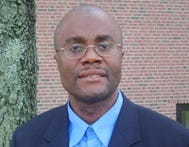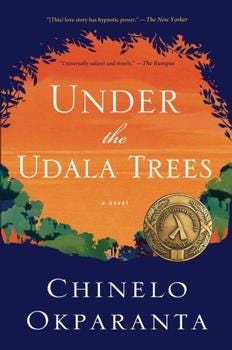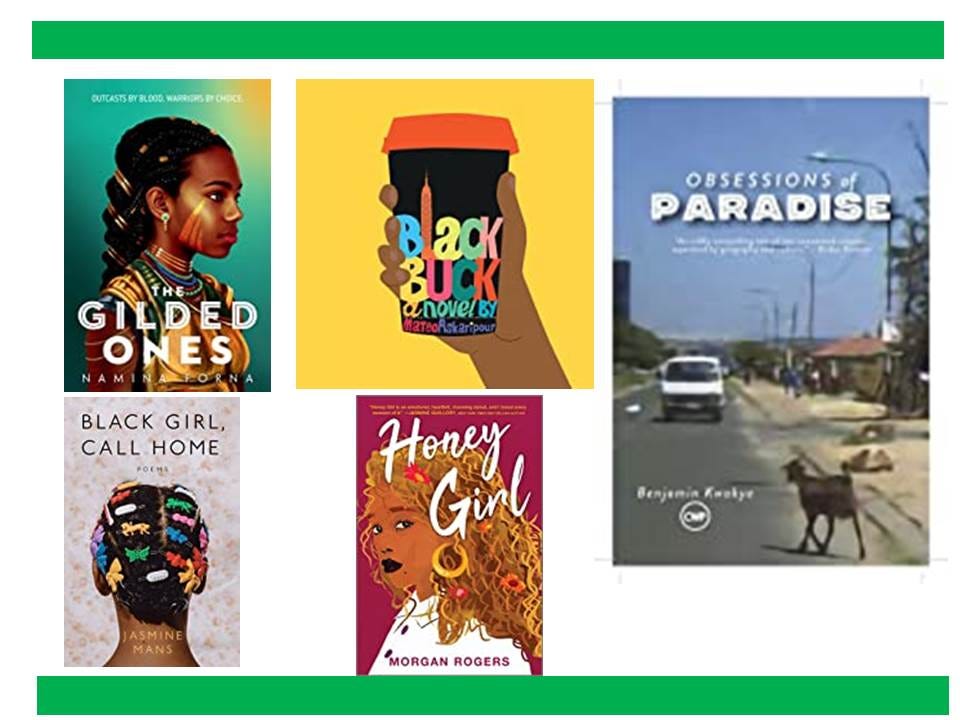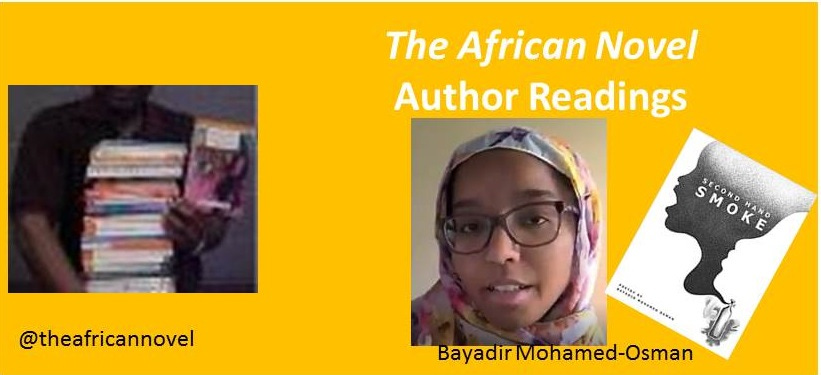Thanks for reading The African Novel! Subscribe for free to receive new posts and support our work.
CONTENTS
Editor-in-Chief's Message
Memorable Lines: Under The Udala Trees
Bookshelf: Summer Reading List
Common Ground
The African Novel Podcast: Bayadir Mohamed-Osman
Book Review: Little Boys Come from the Stars
Author Readings: Bayadir Mohamed-Osman
Book Events & More
Our Radio Archives
Off the WRITE Path
African Proverb: Nigerian
Editor-in-Chief’s Message
Is the tide turning for African literature in America and the rest of the West? Are we witnessing a renaissance of African literature in our social-media-connected global village today? Are writers of African fiction taking the literary world by storm?
I do not have take-it-or-leave-it answers. But I must admit that mulling over these and other related interrogations about African letters, poetry, and performances many times daily feeds my life with a purpose.
In fact, we would not be publishing this digital newsletter if we did not believe deeply in African literature. We, as a team here, started promulgating the African novel — as a vocation — way before it became a popular hobby for many today.
Nevertheless, we feel honored that we are among a growing global army of lovers of African literature celebrating it and fighting for its propagation, employing every available modern technology today: social media, blogs, and the likes.
Celebration and coverage of African literature is ubiquitous these days. Its growth in the last few decades continues to garner more ink in various print and online publications. African storytellers — novelists, poets, social justice activists, college professors, Nobel laureates, you name it — are churning out titles after titles, demanding that audiences around the world listen to the many stories they have to tell about Africa. Some accomplished, published authors are already mentoring the next generation of African writers.
If you are an African novel aficionado, I’d recommend you create immediately google alerts for African novel, African writers, African literature, newly published African novels. You will reap daily harvests of delightful readings. (I shall return to this sub-theme in a new blog in the future).
If you take my advise, please share with us your thoughts and reactions to the alerts you receive.
Enjoy!
Cyril Ibe, Ph.D
P.S. Perhaps a friend forwarded this email to you. Sign up now to receive The African Novel directly in your inbox.
Memorable Lines
"Ours was a gated compound, guarded at the front by a thicket of rose and hibiscus bushes. Leading up to the bushes, a pair of parallel green hedges grew, dotted heavily in pink by tiny, star-like ixora flowers. Vendors lined the road adjacent to the hedges, as did trees thick with fruit: orange, guava, cashew, and mango trees. In the recesses of the roadsides, where the bushes rose high like a forest, even more trees stood: tall irokos, whistling pines, and a scattering of oil and coconut palms. We had to turn our eyes up toward the sky to see the tops of these trees. So high were the bushes and so tall were the trees."
— from Under the Udala Trees (Houghton Mifflin, 2015 ) by Chinelo Okparanta.
Bookshelf
Are you still looking for interesting books to transport you to unimaginable places for the rest of your summer? Check out the following recommended Summer Reads:
Common Ground
Three Diaspora Group books launched. Check them out!
The African Novel Podcast #3
Sudanese poet Bayadir Mohamed-Osman talks with Editor-in-Chief Cyril Ibe about her newly published collection of poetry, Second Hand Smoke.
You’d Also Like Author Readings:
Vanessa Onwuemezi — Dark Neighbourhood
Kabuika Kamunga — Kabuika Wants to Make New Friends
Cyprian Njoku Josson — The Immigrant Ladder
Book Review
Title: Little Boys Come from the Stars
Author: Emmanuel Dongala
Publisher: Farrar, Straus and Giroux
Reviewer: Benjamin Kwakye
Emmanuel Dongala’s novel Little Boys Come from the Stars is as erudite as it is accessible.
The novel recounts a young man’s coming of age. It is also a perceptive chronicle of the growing pains of a new central African country. Matapari, the last to arrive in a group of triplets, faces immediate alienation. He is a marked child because his society is not used to seeing triplets. As the third child, he becomes a phenomenon of sorts and finds himself alienated from society, alienated from his brothers. And yet, as much as it is deep-seated, the fraternal alienation is surmountable.
This serves as an apt metaphor for Africa itself, its rivalries, its internal divisions, its numerous alienations. Forming a part of the fabric for Matapari’s tale, then, is the larger society. At that level, Dongala’s Little Boys Come from the Stars becomes a portrayal of Africa’s recent history, from its hopes at independence, the disillusions that followed, the toppling of civilian governments, military rule, and the return to civilian government. Caught in this cyclone is Matapari’s uncle, whose political opportunism stands in sharp contrast to Matapari’s father, a modest man who prefers to live in peaceful pursuit of knowledge.
How the personal and the national interact, how the seemingly endless cycle of hope and hopelessness will end, become central in Dongala’s narrative. Like Achebe in A Man of the People, Dongala demonstrates an admirable skill deftly to focus his lenses on the African political landscape and, in so doing, expose the soul of the continent’s people, so to speak.
Emmanuel Dongala was born in Brazzaville in the Republic of Congo. He has written at least three award-winning novels and a collection of short stories. He teaches at Bard College in Annandale on the Hudson River.
Editor’s Note: Reviewer Benjamin Kwakye is The African Novel’s “Resident Novelist.”
Author Readings
Hear authors themselves reading from their works.
Bayadir Mohamed-Osman, Maryland, US-based poet, reads from Second Hand Smoke.
Book Events & More…
In Person
The Grand Rapids Public Library (GRPL) has launched the Black Lit Book Club in celebration of African American authors. The book club will meet monthly to discuss one book written by an African American author. GRPL’s librarians will lead the book discussions.
Book club enthusiasts will gather outside at the Seymour library branch, 2350 Eastern Ave SE, Grand Rapids, Mich. 49507.
The book club’s schedule through August, 2022 is as follows:
July 26: The City We Became by N.K. Jemisin.
Aug. 23: Transcendent Kingdom by Yaa Gyasi.
All book club meetings are scheduled from 6:30 to 7:30 p.m. For more information: (616-988-5413), or visit Grand Rapids Public Library.
In Person
What: 15th Hargeysa International Book Fair 2022 under the theme “Solidarity.” Hosts leading writers, journalists, academics, publishers, artists, and other professionals from dozens of countries. It will feature panels, readings, book launches, performances of theater and poetry over the five days.
When: July 23-28
Where: Redsea Cultural Foundation in Somaliland
For more information: Visit here.
On Demand
What: Library of Congress’ Interviews with African Writers, a three-part series titled “Conversations with African Poets and Writers Series.” Featured are Nigerian-born author Chimamanda Ngozi Adichie, South African novelist and playwright Damon Galgut, and Tanzanian-born novelist and Nobel Laureate Abdulrazak Gurnah.
When: Available since May 2022.
Where: Library of Congress
For more information: Visit here.
Our Radio Archives
Coming soon: Offerings of rare, exclusive interviews and audio documentaries for our paid subscribers.
A partial list of archived Premium offerings:
Interview: Chinua Achebe biographer Ezenwa-Ohaeto
Interview: Nobel Laureate Wole Soyinka on his legendary cousin, Fela
Interview: The Black press in America
Interview: South African novelist Mark Mathabani
Audio Documentary: Eighty Gifts for Poet Laureate Gwendolyn Brooks
An audio tour of the Mandela House Museum in Soweto, South Africa
Interview: Ethiopian-Jewish Filmmaker Orly Malessa
Interview: U.S. filmmaker Ileen LeBlanc on Take Us Home, a documentary pic on the exodus of Ethiopian Jews to Israel.
Interview: American historian Edward Haas on slavery, the civil war, and the uncelebrated role of Blacks in the union army.
Interview: Herbert Martin, professor emeritus of English literature and African-American studies at the University of Dayton and co-editor of The Collected Novels of Paul Laurence Dunbar (Ohio University Press).
Off the WRITE Path
What authors are doing when they’re not penning a new novel:
Okey Ndibe muses about Nigerian politics.
Cyprian (Njoku) Josson directs a gospel group in Chartres, France, and organizes “Festival International de Gospel et Negro Spiritual de Chartres” in the historic French city.
African Proverb
"Other people’s wisdom prevents the king from being called a fool.” — Nigerian Proverb.
Our Team
Cyril Ibe, Ph.D., Editor-in-Chief (Ohio)
Resident Novelist/Reviewer Benjamin Kwakye (Michigan)
Nollywood Director/Filmmaker/Novelist Cyprian Josson (Chartres, France)
Contributor/Writer Kabuika Kamunga (Minnesota)
Thanks for reading The African Novel! Subscribe for free to receive new posts and support our work.















